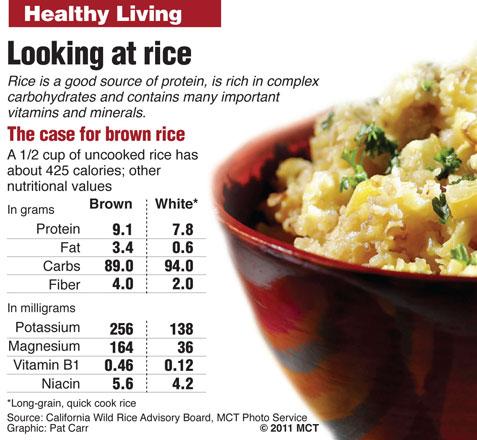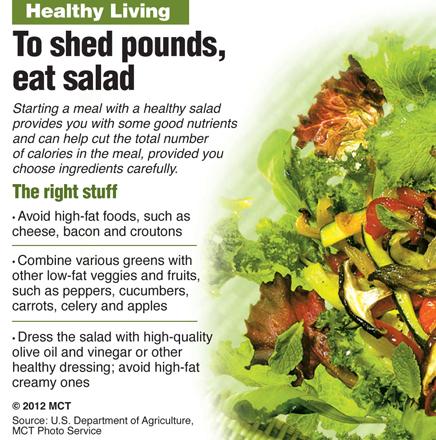You are here
Nutritionists urge rice-loving Jordanians to switch to healthier options
By Suzanna Goussous - Jan 05,2016 - Last updated at Jan 05,2016

AMMAN — With more than 27kg of rice consumed per person annually, Jordan is one of the world’s top countries for per capita rice and carbohydrate consumption, according to a study by the US Department of Agriculture (USDA).
Many of the carbohydrates in daily meals can be replaced with healthier options such as vegetables and fibre-rich foods, said Amal Nasser, a diet and nutrition consultant and member of the American Dietetic Association.
“[Short/medium-grain] white rice has no nutritional value; it is pure sugar and fills the body with what we describe as ‘empty calories’,” Nasser told The Jordan Times on Tuesday. She said white rice does not harm the body, but it also does not benefit it, and it can be replaced with healthier foods.
“Those who do not suffer from health problems or obesity might think this has nothing to do with them. Yet, in general, people should, when they can, replace it with brown rice, for example,” the nutritionist suggested.
The inclusion of brown rice or bread in meals provides the body with more nutritional benefits because they are “complex carbohydrates”, according to Nasser.
Females should consume 250 grammes of rice daily, equivalent to one measuring cup, while males can eat a cup and a half, though the recommended quantity varies from one person to another.
Every 100grammes of rice contains 130 calories.
Where carbohydrates are concerned, quality beats quantity, and quality carbohydrates are those with more fibre and more enriching ingredients, Nasser said.
“No one diet fits everyone. It depends on the lifestyle of each person and their calorie intake. We cannot generalise — it depends on their height, weight, daily consumption or medical reports,” she added.
In Jordan, most traditional dishes contain white rice as a main ingredient, and the diet consultant said she encountered resistance when advising people to replace it with healthier alternatives.
“Most of my clients tend to have some kind of resistance to reducing the amount of white rice or replacing it with other elements, but as a nutritionist, I have to educate and guide them,” Nasser noted.
“It does not happen overnight. They have to reduce the amount of white rice first, and then they can replace it with brown rice or other fibre-rich ingredients.”
Although mansaf, the Kingdom's traditional dish, is made with low-fat yoghurt called jameed, the meat in the dish can be oily and unhealthy, especially if cooked with ghee, Nasser pointed out.
The combination of fatty meat and white rice can be a factor in raising low-density lipoprotein, which could cause high cholesterol levels in the body, she explained.
Households with children should be careful when serving dishes with rice and opt for steamed and brown rice, which are more beneficial to the body, especially at a young age. Yet children are less likely to be obese than adults because they are more active, according to the consultant.
Nasser noted that several other components included in daily diets, such as juices, cakes, muffins and candy could also lead to health risks, especially for children.
Nutritionist Mayda Tutunjian said any adult who is overweight should eat only around 50 grammes or eight tablespoons of rice with the main meal.
“The rice should be steamed, poached, cooked with little oil, or using a rice maker. This makes it healthier,” she told The Jordan Times. “White rice gives one energy, but from carbohydrates, which turn into sugar and then fat, leading to higher obesity rates,” she said.
However, Tutunjian noted that while people in the Far East eat more rice than Jordanians, they do not have high obesity rates due to their healthy lifestyle.
The USDA study indicated that Jordan consumes over 200,000 tonnes of rice per year. Official figures show that the overall value of rice imports from several suppliers such as Thailand, Pakistan, India, and Turkey amounts to around $200 million a year.
Related Articles
AMMAN — As Ramadan begins, many look forward to a month of sugary desserts, but experts suggest modifying these traditional sweets or choosi
People who tend to eat mostly plants may be less likely to develop type 2 diabetes, a research review suggests. Researchers examined da
AMMAN — Changing daily habits and lifestyles have contributed to an increasing percentage of obesity in the Kingdom, specialists have agreed














